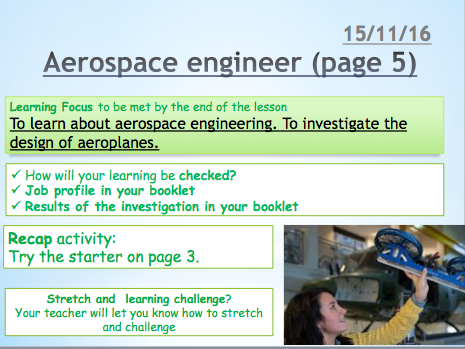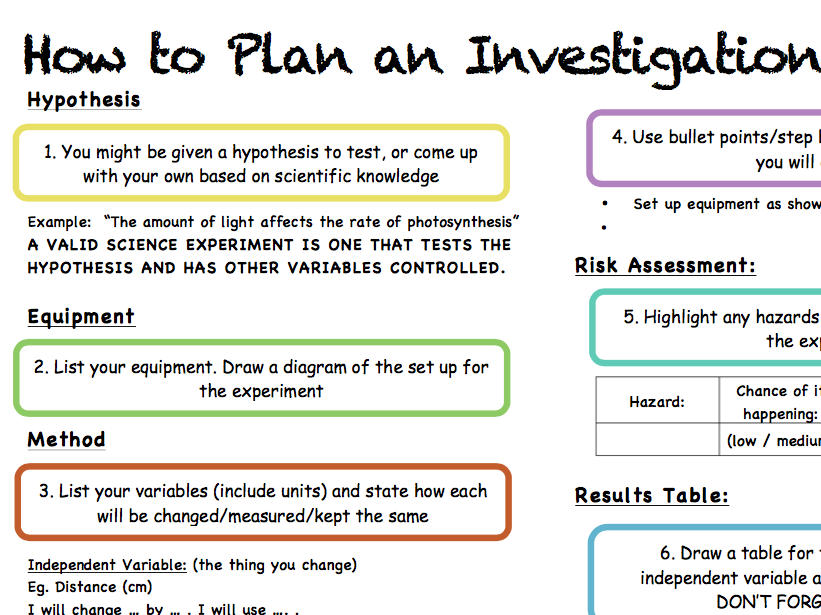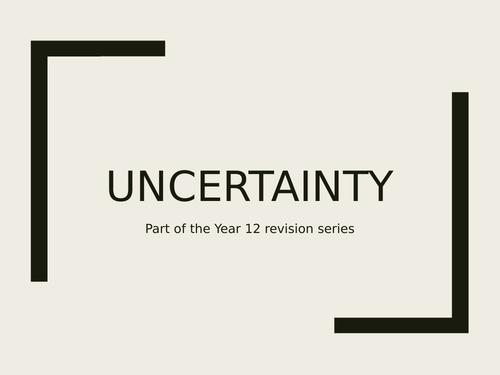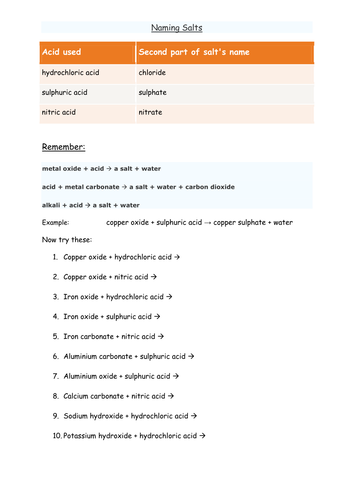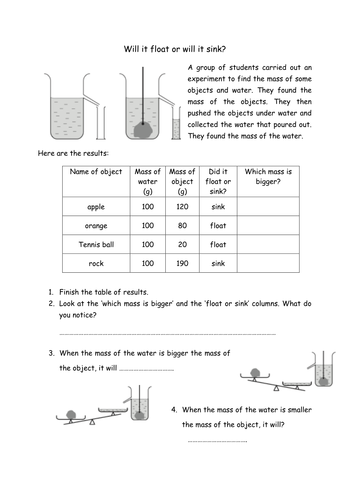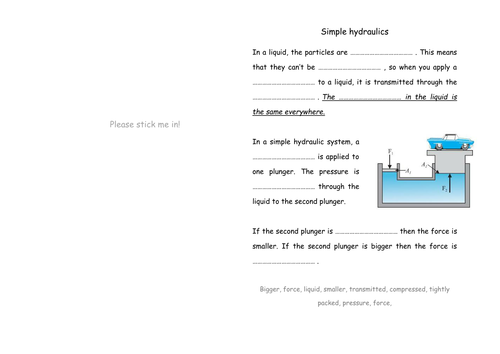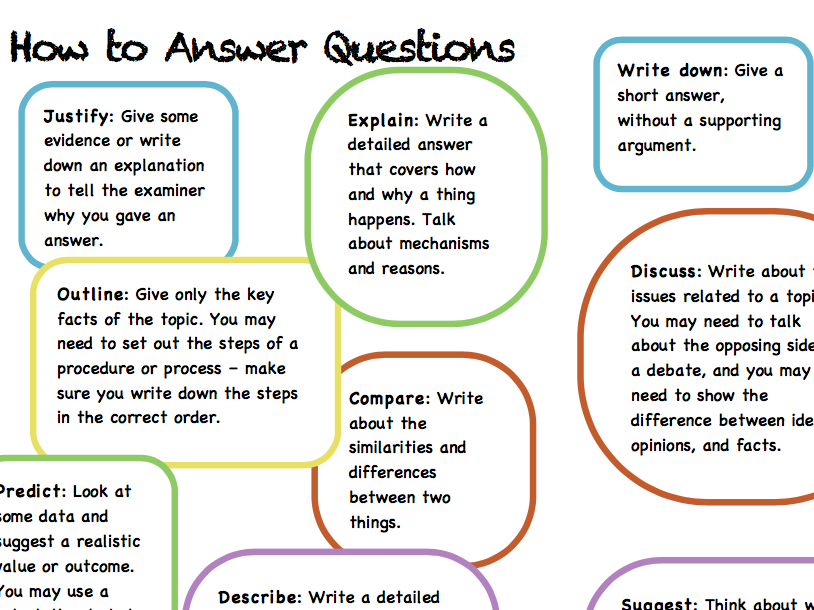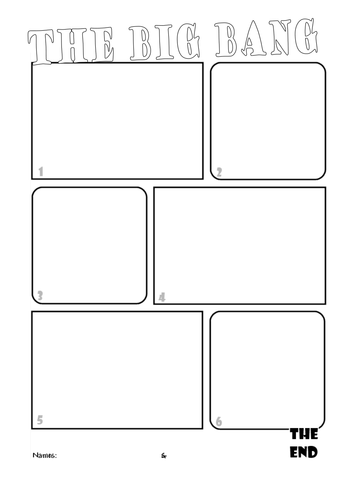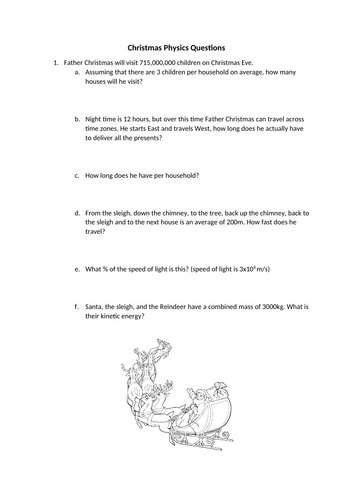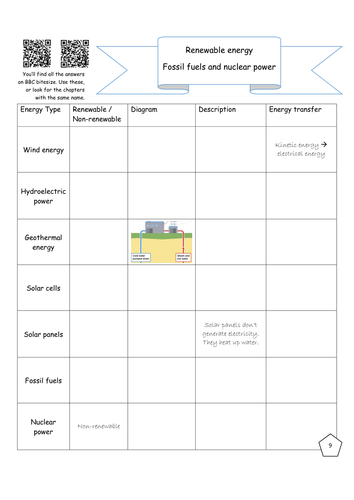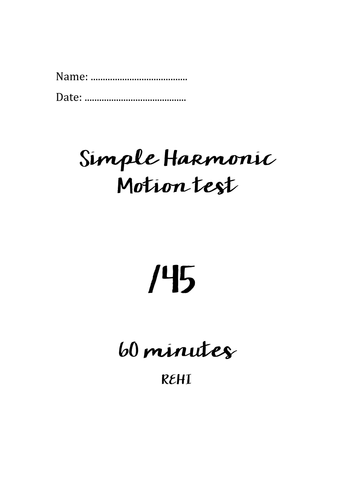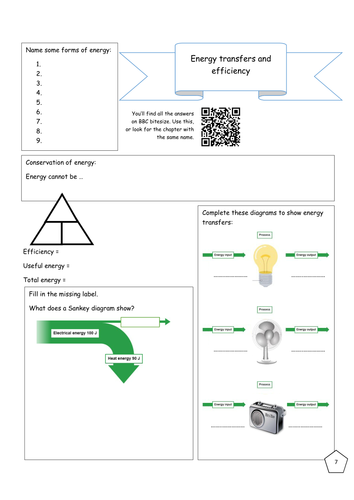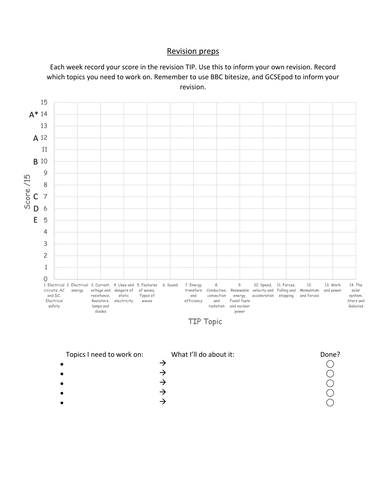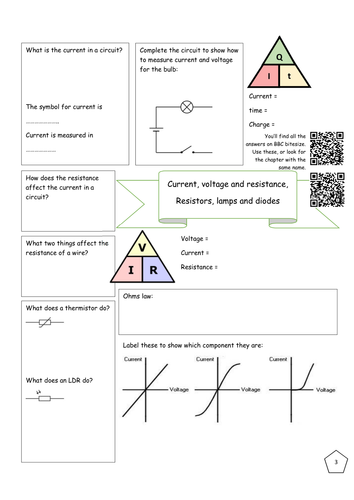
87Uploads
60k+Views
11k+Downloads
All resources

Practical Science Careers project
A series of 8 practical activities, put into the context of careers in Science. This is aimed at KS3 students, introducing some practical skills.
Aims of the project: To learn about some careers in Science, and to try some out. To develop investigation skills as required in the KS4 core practical’s included at GCSE.
Students get to experience being an Aerospace engineer by designing and testing paper planes, a Biochemist by testing urine samples, a Biomedical scientist by testing different anti bacterial soaps, a Chemical engineer by investigating recipes for bouncy balls, a Civil engineer by designing and testing bridges, a Forensic scientist by taking and analysing finger prints, a Mechanical engineer by making cotton reel motors, and a Pyrotechnic technician, by testing firework colours and making sparklers.
Each includes a job profile page to be filled out using the national careers service website to provide context for the lesson.
Also included is a handy technician guide.
This is designed to be handed out as a student booklet, with each career taking around 2 single hour lessons to complete, aimed at KS3 students. Students develop their investigation skills, as well as learning about some different careers in Science.

How to plan an investigation / experiment in Science
A help sheet to tell students about how to plan a Scientific investigation or experiment.
I've laminated these, and put them in a folder on the display board so students can help themselves if they need additional support.

Uncertainty in experiments
A summary of the Section 1 - Measurements and Their Errors topic on the AQA Physics A-level course.
Content will apply across different exam boards and includes the following:
SI Units
Calculating Uncertainty using precision
Calculating Uncertainty using range
Calculating Uncertainty using worst line of best fit.
Combining uncertainties.
Each includes some practice questions, and the answers are included int eh comment box in PPT.
I used this as part of revision in preparation for A level exams.

Naming salts worksheet
A differentiated worksheet to help students understand how salts are named, and practise writing word and symbol equations for reactions between:
metal oxides and acids,
alkalis and acids,
and metal carbonates and acids.

Floating or sinking, Archimedes' principle, density worksheet
A differentiated worksheet on why objects float or sink. The worksheet gets progressively harder, helping students to understand floating and sinking, and finally introducing the idea of calculating density.
Works for KS3, or as a reminder for KS4

How to draw a graph Science help sheet
A help sheet to tell students about how to draw and interpret a graph.
I've laminated these, and put them in a folder on the display board so students can help themselves if they need additional support.
Bundle

How to's
A collection of help sheets to support students in answering questions, drawing and interpreting graphs, and planning scientific investigations.
I've laminated these and put them in a folder on my display board so that students can help themselves when they need more support.

Hydraulics and pressure in fluids
A differentiated worksheet, designed to help students to understand pressure in fluids and how simple hydraulic systems work.
Starts with a gap fill, ends with pressure calculations.

Space exploration card sort
Students have the dates, events and names for 6 landmark events in the history of space exploration, they need to match them up. This comes with an answer sheet, and some answer slides to display with pictures.
This is a great start to the satellites topic, and puts the space topic into a human context.

How to answer questions help sheet - science command words
A help sheet to tell students about command words used in Science questions.
I've laminated these, and put them in a folder on the display board so students can help themselves if they need additional support.

Energy and Electricity word loop game
Give each student a card. Each card has an answer at a the top, and a question at the bottom. One student reads out their question, and whoever has the answer reads out the answer and the next question. Keep going until you get back to the first student.
This is a great plenary, or starter for the next lesson.
Alternatively, Give the whole pack to one student, and see if they can match them all up to make a big circle.
This one is for the KS3/GCSE Physics Energy and Electricity topic.

Big Bang comic strip
Students order some statements describing the Big Bang Theory, then draw pictures to turn it into a comic strip.

Dinosaur food chains
I used these information cards on different dinosaurs to start a project with my year 7s.
I told my students that we were designing a fish tank, but for dinosaurs! They had to choose their favourite for their tank. They had to think about other dinosaurs they’d have to include to create a food chain for their pet, as well as the habitat. More able students also thoughts about other things they might want to include based no the adaptations of their chosen dinosaur.
Alternatively, students could use these to make a food chain, or food web, and the extension task could be to write about their adaptations or habitats.

Hubble's law and the Redshift equation
A worksheet allowing pupils to calculate recessional velocity using the change in wavelength of spectral lines from stars.
This focuses on using the v/c = change in wavelength / wavelength equation.
After answering the 5 questions, pupils can conclude that the more distant the galaxy, the faster it is moving, which makes a great introduction to redshift and the Big Bang Theory.
There is an extension task to plot the recessional velocity against distance, calculate Hubble’s constant and calculate the age of the Universe.
If calculated correctly, pupils should conclude that the Universe is 13.8 billion years old.
Answers included.
The extension task is a great way to stretch and challenge the most able at GCSE, while the main task allows weaker pupils to practice using the Doppler shift redshift equation.
This could also act as a nice task for A-level pupils, studying Hubble’s law.

Christmas Worksheet Science: Physics: Energy and Electricity
Some Christmas questions based on Physics knowledge, with answers.
This includes questions on:
Speed equation
Electrical power
Voltage, current and resistance
GPE
KE
Work done
Thermal energy transfers
Designed for Year 10 or 11.
Merry Christmas!

Bitesize Energy revision - Renewable energy, fossil fuels and nuclear power
This is a worksheet in a series made to summarise and recap topics from GCSE Physics. This one has two versions for dual award and separate scientists.
All worksheets are based on BBC bitesize pages with the same name, with a QR code to guide students to the correct page. All the answers to the front page can be found there.
There is then a 15 mark exam-style question to test their new knowledge. Every worksheet in the series is out of 15 so students can track their progress. I've used them with year 11, and set them as homework, that way they are forced to revise early!
This is designed to help revise for the Edexcel iGCSE in Physics, but is fairly universal and should fit with any exam board.
Includes PDFs for easy printing, and word documents for editing.

Simple Harmonic Motion test OCR A level Physics KS5
This is a 60 minute assessment made up of past paper questions from the OCR Physics A - H158, H558 course.
A level Physics topic questions.

Bitesize Energy revision - Energy transfers and efficiency
Review please!
This is a worksheet in a series made to summarise and recap topics from GCSE Physics.
All worksheets are based on BBC bitesize pages with the same name, with a QR code to guide students to the correct page. All the answers to the front page can be found there.
There is then a 15 mark exam-style question to test their new knowledge. Every worksheet in the series is out of 15 so students can track their progress. I've used them with year 11, and set them as homework, that way they are forced to revise early!
This is designed to help revise for the Edexcel iGCSE in Physics, but is fairly universal and should fit with any exam board.
Includes PDFs for easy printing, and word documents for editing.

Revision tracker
This is a tracker designed for use with revision summary and exam sheets. Find them in my shop, there are 14 in total across the following topics:
Electricity
Waves
Energy
Forces/Motion
They are a series made to summarise and recap topics from GCSE Physics. Some have two versions for dual award and separate scientists.
All worksheets are based on BBC bitesize pages with the same name, with a QR code to guide students to the correct page. All the answers to the front page can be found there.
There is then a 15 mark exam-style question to test their new knowledge. Every worksheet in the series is out of 15 so students can track their progress. I've used them with year 11, and set them as homework, that way they are forced to revise early!
This is designed to help revise for the Edexcel iGCSE in Physics, but is fairly universal and should fit with any exam board.
Includes PDFs for easy printing, and word documents for editing.

Bitesize Electricity revision - Current, voltage and resistance, lamps and diodes
This is ta worksheet in a series made to summarise and recap topics from GCSE Physics.
All worksheets are based on BBC bitesize pages with the same name, with a QR code to guide students to the correct page. All the answers to the front page can be found there.
There is then a 15 mark exam-style question to test their new knowledge. Every worksheet in the series is out of 15 so students can track their progress. I've used them with year 11, and set them as homework, that way they are forced to revise early!
This is designed to help revise for the Edexcel iGCSE in Physics, but is fairly universal and should fit with any exam board.
Includes PDFs for easy printing, and word documents for editing.

